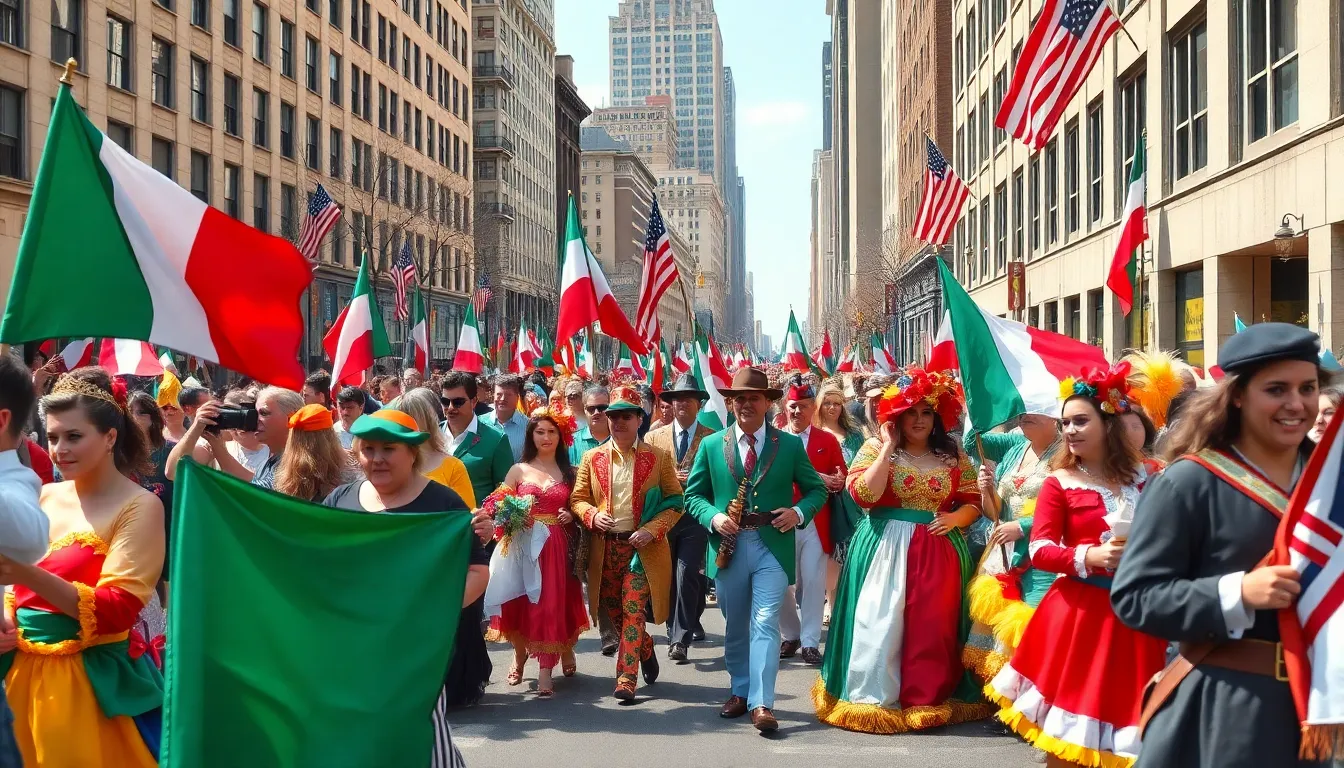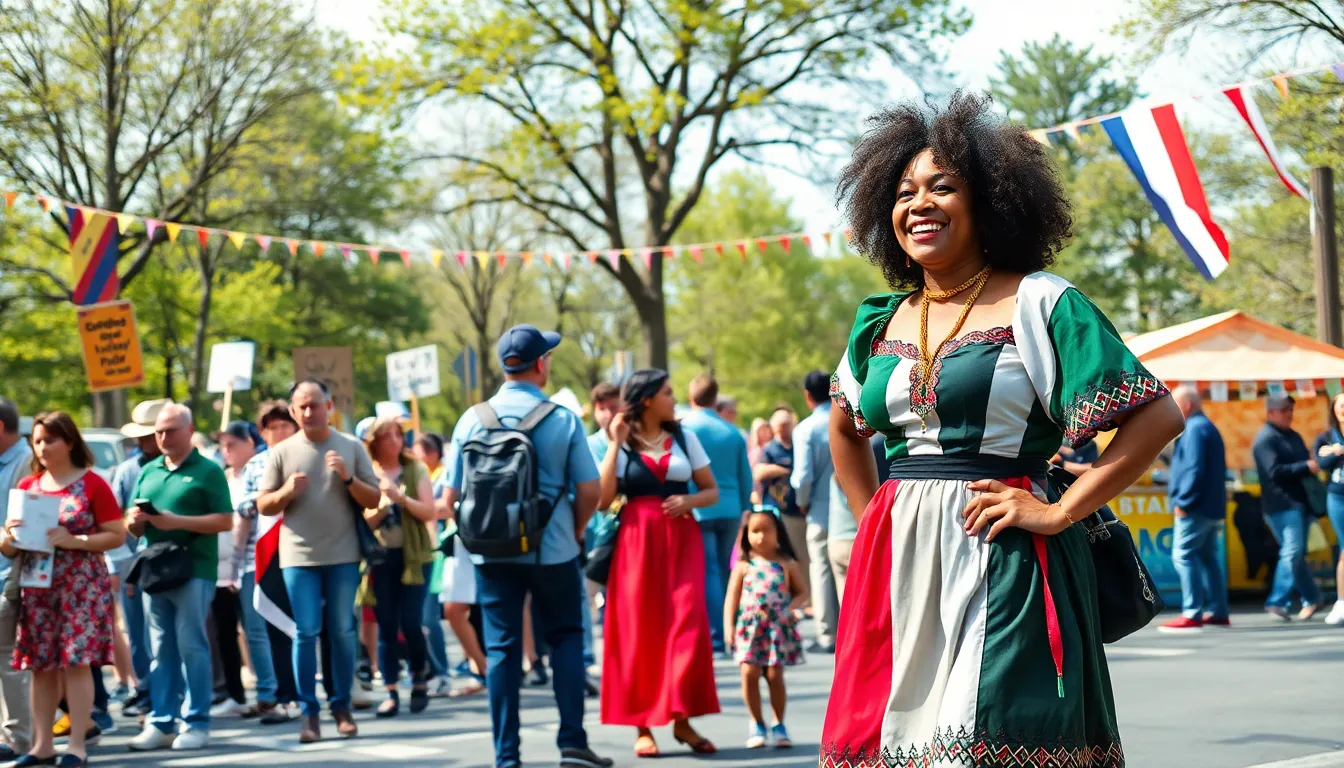Table of Contents
ToggleColumbus Day sparks a mix of celebration and debate across the United States. While some view it as a time to honor exploration and discovery, others question its implications and the historical narratives surrounding it. This holiday, observed on the second Monday in October, raises an important question: do people actually work on Columbus Day?
In many sectors, Columbus Day is recognized as a federal holiday, leading to school closures and government office shutdowns. However, the reality is more complex. Many businesses, especially in retail and hospitality, remain open, and employees may work as usual. Understanding the nuances of this holiday can shed light on how it impacts various industries and communities.
Overview of Columbus Day
Columbus Day occurs annually on the second Monday in October. The holiday honors Christopher Columbus’s arrival in the Americas in 1492, a significant event in European and American history. Many states recognize this day as a federal holiday, resulting in school and government office closures.
Despite the federal recognition, reactions to Columbus Day vary widely. Some celebrate the contributions of Italian-Americans and mark the day with parades and cultural events. In contrast, others highlight the negative impact of colonization on Indigenous peoples, leading to protests and calls for alternative observances like Indigenous Peoples’ Day.
In the business realm, reactions also differ. While most schools and government offices close on Columbus Day, many private businesses, especially in sectors like retail, hospitality, and tourism, choose to remain open. This decision often stems from the holiday’s commercial impact, balancing local traditions against consumer demand.
Understanding these varying perspectives underscores the complexity of Columbus Day’s significance in contemporary society.
Historical Context

Columbus Day has a complex history in the United States, marked by both celebration and controversy. Understanding the origins and evolution of this holiday provides insight into its current significance.
Origins of Columbus Day
Columbus Day emerged as a United States holiday to honor Christopher Columbus’s 1492 arrival in the Americas. In 1937, President Franklin D. Roosevelt declared it a federal holiday, solidifying its status. Italian-American communities played a pivotal role in promoting the holiday as a celebration of their heritage, especially in cities like New York and Chicago. Advocacy for the holiday often focused on showcasing contributions to American culture by immigrants.
Evolution of Observance
Over the years, Columbus Day observance has transformed significantly. While federal and many state employees still receive a day off, public sentiment shifted regarding the implications of honoring Columbus. Growing awareness of the impact of colonization on Indigenous communities sparked protests and discussions around redefining the holiday. This led to the establishment of Indigenous Peoples’ Day in several states as an alternative observance. By 2023, 14 states recognized Indigenous Peoples’ Day, indicating a marked shift toward inclusion and acknowledgment of diverse historical perspectives.
Current Practices
Columbus Day’s observance varies significantly across the United States, reflecting local customs and policies regarding work and school schedules.
States That Recognize Columbus Day
As of 2023, 23 states officially observe Columbus Day as a public holiday. States such as New York, Illinois, and California recognize it, often closing state offices and schools. Other states, including Mississippi and Alabama, maintain the holiday but with reduced emphasis. In contrast, states like South Dakota and Hawaii do not recognize Columbus Day at all, promoting Indigenous Peoples’ Day or alternative observances instead.
| State | Recognition Status |
|---|---|
| New York | Observed |
| Illinois | Observed |
| California | Observed |
| South Dakota | Not Observed |
| Hawaii | Not Observed |
| Vermont | Observed (Indigenous Peoples’ Day) |
Work Policies on Columbus Day
In the business sector, many private companies remain open on Columbus Day, particularly in industries such as retail, hospitality, and transportation. These businesses may operate with regular hours to accommodate consumer needs. However, public sector employees typically receive a paid day off, with many government offices closed. Companies often have flexible policies, allowing employees to choose whether or not to work, depending on individual and company values regarding the holiday’s significance.
Opinions and Perspectives
Opinions about Columbus Day reflect a broad spectrum of beliefs, with supporters and critics articulating their views on its relevance and implications in today’s society.
Proponents of the Holiday
Proponents argue that Columbus Day serves as a celebration of exploration and cultural heritage. They emphasize the historical achievements of Christopher Columbus, particularly the 1492 voyage that marked the beginning of European exploration in the Americas. Many Italian-Americans view the day as a tribute to their ancestry, celebrating their contributions to American culture through parades, cultural events, and educational festivals. Supporters also point to Columbus’s role in fostering transatlantic exchange, believing it paved the way for the multicultural nation that the United States is today.
Critics of Columbus Day
Critics argue that Columbus Day symbolizes the negative consequences of colonization, including the violence and exploitation suffered by Indigenous peoples. They view the holiday as a celebration of a figure who initiated an era marked by oppression and cultural erasure. Many advocate for the replacement of Columbus Day with Indigenous Peoples’ Day, highlighting the need for inclusivity and recognition of historical injustices. This perspective has gained traction, with numerous states adopting alternatives and engaging in protests against Columbus Day observances. Critics believe that acknowledging the full history of colonization fosters understanding and reconciliation.
Alternatives Celebrated on the Same Day
Several alternatives to Columbus Day are gaining recognition, aiming to honor Indigenous cultures and promote awareness of historical events.
- Indigenous Peoples’ Day: Celebrated in 14 states by 2023, this observance focuses on the history and contributions of Indigenous peoples across America. Events often include cultural activities, educational programs, and discussions surrounding the impact of colonization.
- Native American Day: Some states, such as South Dakota and California, recognize this day to celebrate Native American heritage. Activities often highlight traditional practices, artworks, and historical contributions.
- Día de la Raza: Celebrated in parts of Latin America, this day honors the diverse cultures stemming from the mixing of Indigenous and European peoples. Events may include parades and educational activities to foster understanding of varying heritage.
- Race Day: Some communities commemorate Race Day, focusing on the achievements and struggles of various ethnic groups in the U.S. This observance encourages discussions around race relations and cultural heritage.
These alternatives to Columbus Day reflect a shift towards inclusivity and recognition of diverse historical perspectives.
Columbus Day remains a complex and evolving holiday in the United States. With varying observances across states and among individuals, the day reflects a broader discussion about historical narratives and cultural recognition. While some celebrate the achievements associated with Columbus and Italian-American heritage, others advocate for a shift towards acknowledging the impact of colonization on Indigenous communities.
As society continues to evolve, so do the conversations surrounding this holiday. The growing acceptance of alternatives like Indigenous Peoples’ Day highlights a commitment to inclusivity and a more nuanced understanding of history. Ultimately, how people choose to observe or work on Columbus Day will depend on personal beliefs and the values of their communities.








